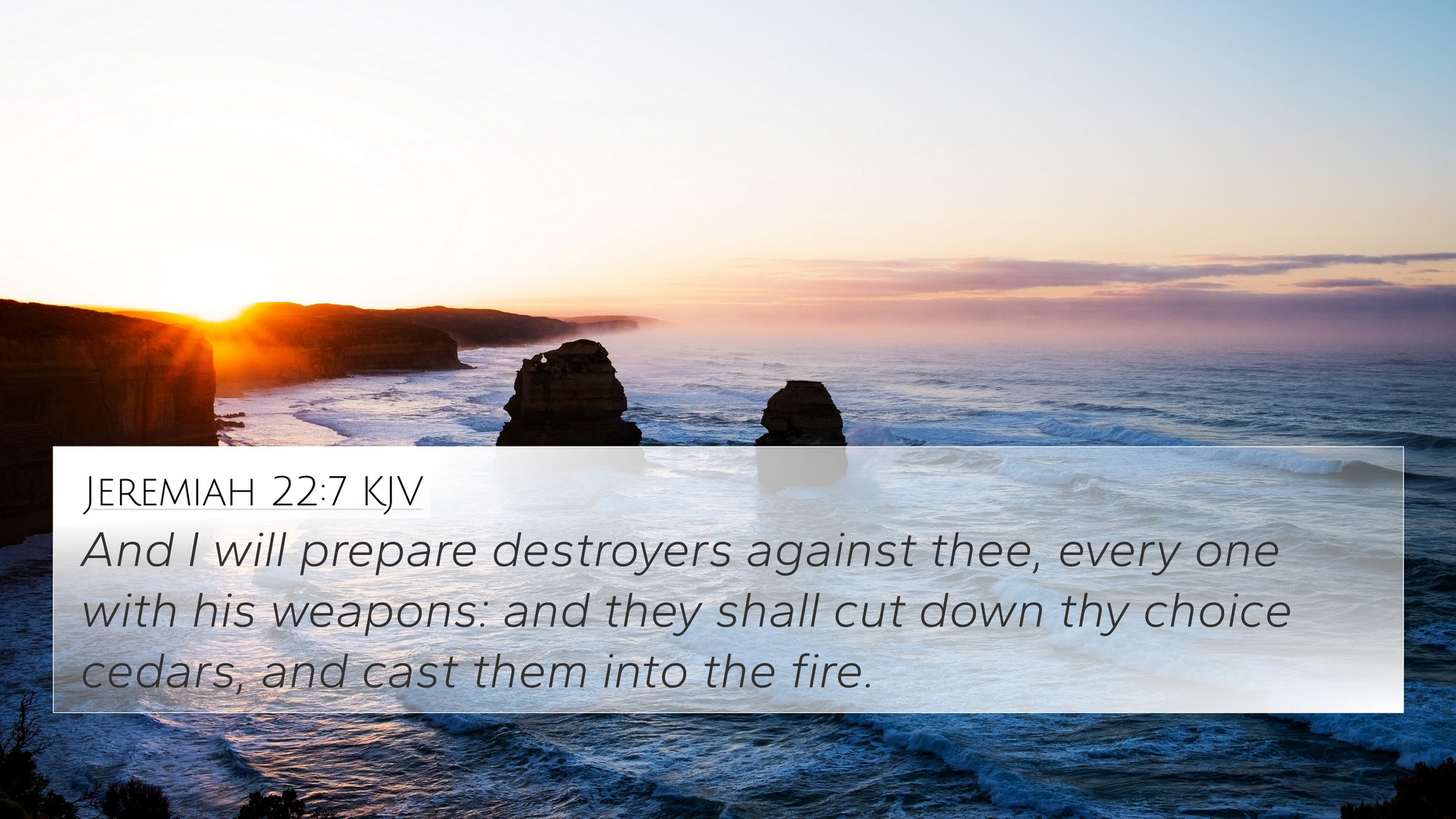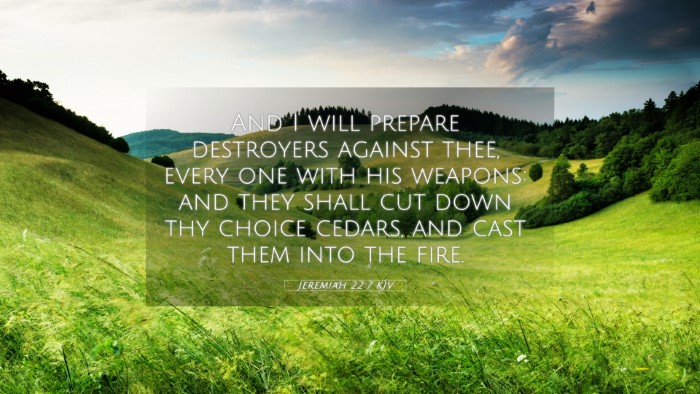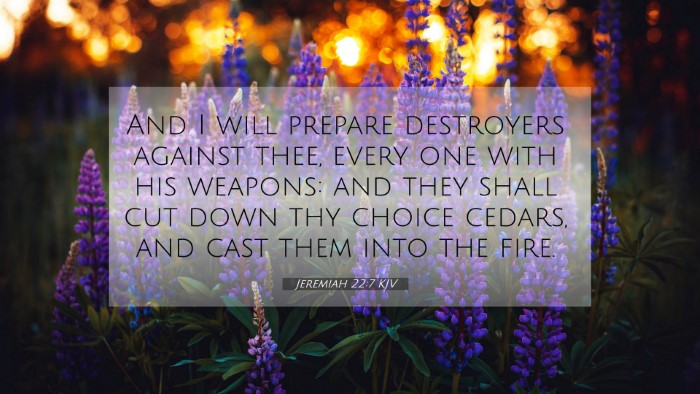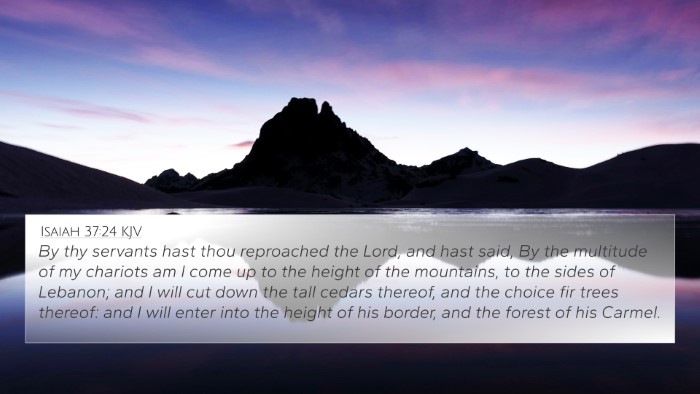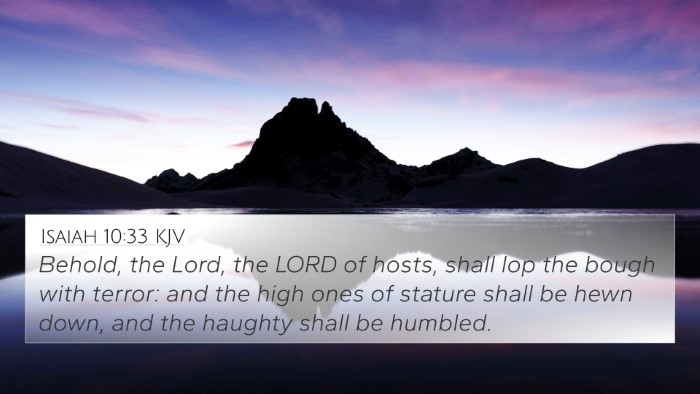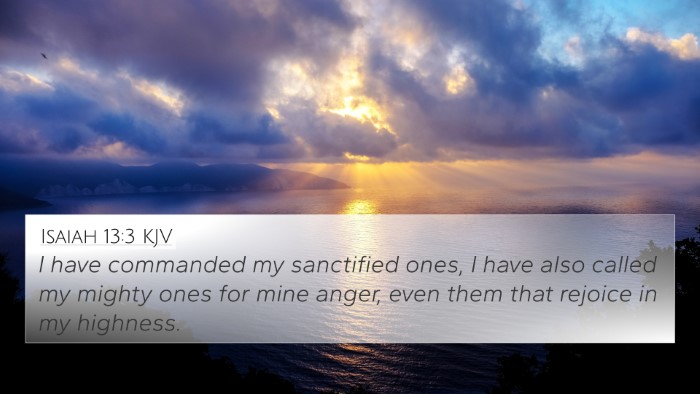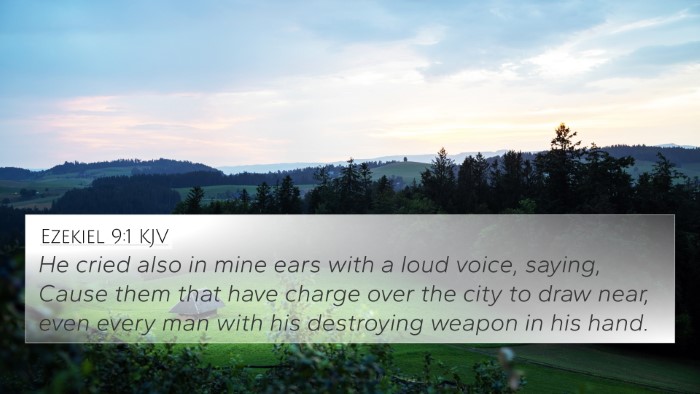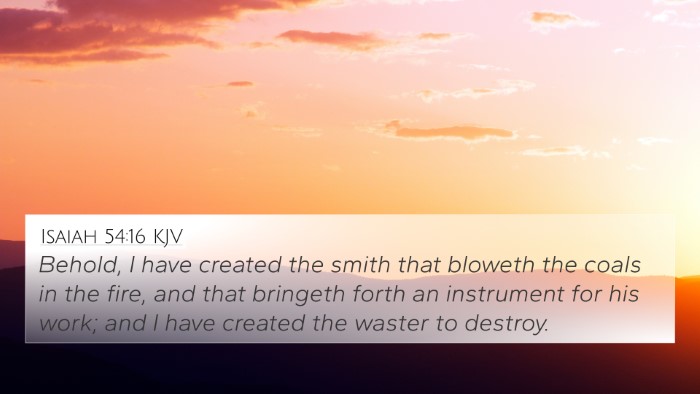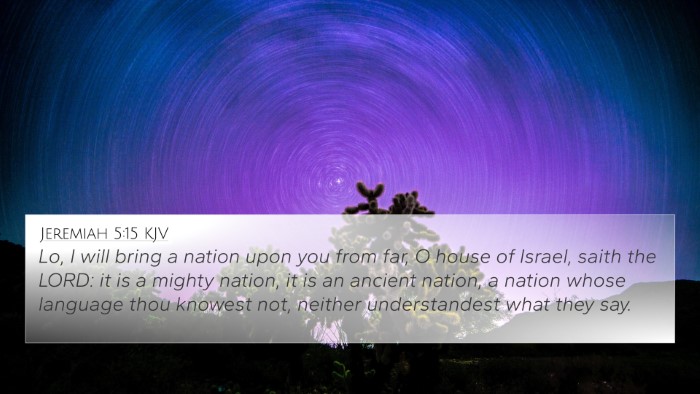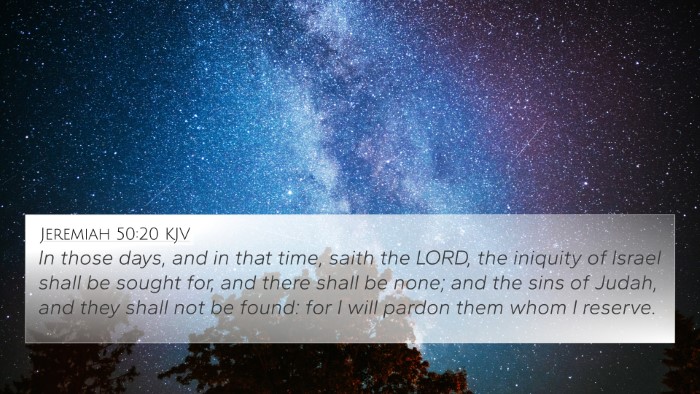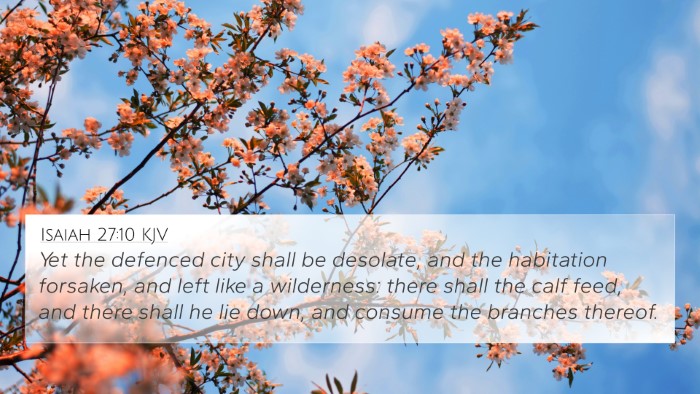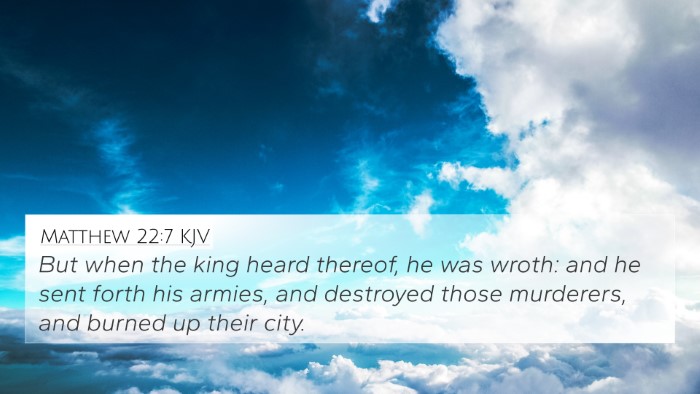Meaning and Interpretation of Jeremiah 22:7
Verse Context: Jeremiah 22:7 (KJV) states, "And I will prepare destroyers against thee, every one with his weapons: and they shall cut down thy choice cedars, and cast them into the fire." This verse is part of the prophet Jeremiah's message to King Jehoiakim and serves as a warning regarding the impending judgment and destruction that would come upon Jerusalem due to the king's actions and disobedience to God.
Overview of Commentaries
Understanding Jeremiah 22:7 can be enhanced by examining insights from prominent public domain commentaries. Below are combined interpretations from Matthew Henry, Albert Barnes, and Adam Clarke:
-
Matthew Henry's Commentary
Henry emphasizes the seriousness of God's judgment. The phrase "I will prepare destroyers" indicates that God Himself is organizing the means of destruction. The "choice cedars" symbolize the luxuries and strength of Jerusalem, which will be laid waste. This reflects a divine principle: when a nation or people turn away from God, they forfeit His protection and invite disaster.
-
Albert Barnes' Notes
Barnes highlights the historical context, pointing out the figurative language of cutting down cedars points to the removal of political and spiritual leaders who had led the nation astray. He notes the use of weapons signifies a total military attack, which aligns with prophecies of invasion found throughout Jeremiah’s messages. Barnes insists that this verse serves as both a warning to those in power and a commentary on the nation’s moral decay.
-
Adam Clarke's Commentary
Clarke explores the symbolism in this verse, suggesting that the "destroyers" may represent both foreign armies like Babylon and inner turmoil caused by the king’s misrule. He connects this with the overarching theme of divine retribution, as Jerusalem's glory will be diminished due to persistent rebellion against God’s commandments. Clarke invites readers to reflect on the consequences of leadership that strays from divine principles.
Bible Cross-References
Jeremiah 22:7 resonates with several other scriptures that underline themes of destruction, judgment, and accountability. Here are some cross-references that relate to this verse:
- Isaiah 10:33-34 - "Behold, the Lord, the Lord of hosts, shall lop the boughs with terror..." This speaks to the destruction of the proud and powerful.
- Ezekiel 17:9 - "Say thou, Thus saith the Lord God; Shall it prosper? shall he not pull up the roots thereof..." This verse underscores the certainty of God’s judgment.
- Jeremiah 21:4-5 - "Thus saith the Lord God of Israel; Behold, I will turn back the weapons of war..." which parallels the theme of inevitable destruction.
- 2 Kings 25:9 - "And he burnt the house of the Lord, and the king's house, and all the houses of Jerusalem..." This provides a historical account of Jerusalem's desolation.
- Micah 3:12 - "Therefore shall Zion for your sake be plowed as a field..." pointing to the ruin that follows disobedience.
- Lamentations 2:8 - "The Lord hath purposed to destroy the wall of the daughter of Zion..." confirming the prophetic warnings of Jeremiah.
- Habakkuk 1:6 - "For, lo, I raise up the Chaldeans, that bitter and hasty nation..." establishing the instrument of God’s wrath on disobedient nations.
- Matthew 23:37 - "O Jerusalem, Jerusalem, thou that killest the prophets..." drawing parallels between Old Testament prophecies and New Testament fulfillments.
- Luke 19:44 - "And shall lay thee even with the ground..." further articulating the consequence of rejecting God's ways.
- Revelation 21:2 - "And I John saw the holy city, new Jerusalem..." contrasting the destruction with the future hope of restoration for those who return to God.
Thematic Connections and Interpretations
This verse and its related themes converge on the principles of accountability, the impact of leadership, and divine retribution:
- Accountability: The concept that rulers and nations are accountable to God for their actions is prominent throughout scripture. Jeremiah 22:7 serves as a reminder of the consequences of failing to lead in accordance with God's will.
- Significance of Leadership: The leaders invoked in this verse, particularly King Jehoiakim, exemplify the critical role of righteousness and justice in governance. The destructive outcomes serve as a sobering warning to all leaders.
- Divine Retribution: The certainty of God’s judgment is seen throughout biblical history. This theme helps believers understand that God does not abandon His people but instead responds to their actions, both positive and negative.
- The Hope of Restoration: While the verse forewarns of destruction, the overarching narrative of the Bible concludes with restoration. This provides a framework for understanding that while judgment is certain, so too is God's mercy and redemption for those who turn back to Him.
Tools for Biblical Cross-Referencing
For those wishing to study Scripture more deeply, using tools for Bible cross-referencing can be invaluable:
- Bible Concordance: A Bible concordance provides a comprehensive list of keywords and their corresponding verses, facilitating deeper understanding of specific topics.
- Bible Cross-Reference Guide: This guide highlights verses that correlate thematically or contextually, aiding in comparative Bible verse analysis.
- Cross-Reference Bible Study: Engaging in a cross-reference Bible study allows individuals to explore connections between different biblical texts and themes.
- Bible Reference Resources: Various resources exist for those seeking tools for identifying connections between Bible verses, including study Bibles and online databases.
- How to Use Bible Cross-References: Familiarizing oneself with cross-referencing Bible study methods can enhance understanding during personal study or sermon preparation.
Conclusion
Jeremiah 22:7 serves as a powerful reminder of the consequences of disobedience and the importance of righteous leadership. By examining this verse through the lens of public domain commentaries and relevant cross-references, one gains clarity about God's expectations and the historical context of His judgments. Utilizing tools for cross-referencing and deeper biblical analysis can further enrich one’s understanding of Scripture and the interconnectedness of its themes.
